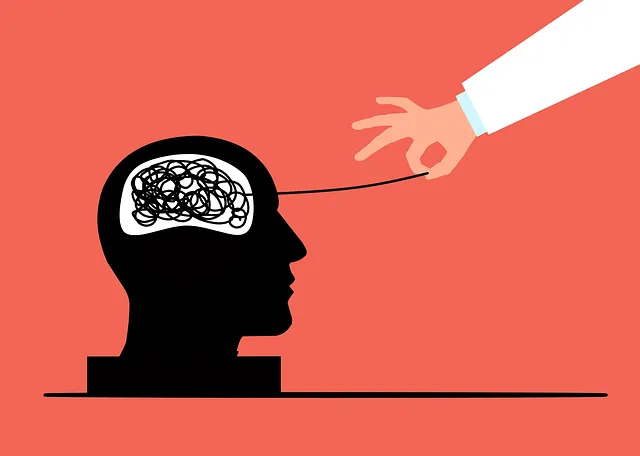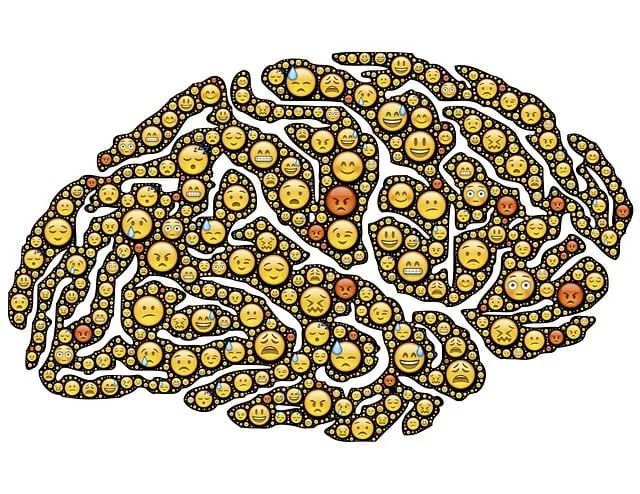Media portrayal of mental health significantly impacts public understanding, either positively by reducing stigma and encouraging support for mental health jobs like those offered by Kaiser Permanente in Lafayette, or negatively by perpetuating stereotypes and deterring individuals from seeking help. Responsible media coverage, challenging harmful narratives, and showcasing diverse real-life experiences are crucial. Kaiser Permanente's initiatives in cultural competency training and mental health education empower staff and media professionals to provide sensitive, accurate reporting, fostering an informed and supportive environment for all mental health services. Open dialogues and training for journalists further promote understanding and reduce stigma, ultimately revolutionizing society's perception of mental health.
In today’s media landscape, the representation of mental illness plays a pivotal role in shaping public perception. This article delves into the profound impact of media portrayal on mental health stigma and offers solutions for improvement. We examine the current state of mental illness depiction in Lafayette and globally, highlighting common misrepresentations. Drawing from Kaiser Permanente’s successful initiatives, we present strategies to enhance media accountability and foster positive narratives. Professionals have a crucial role in guiding these changes, ensuring more accurate and compassionate mental health representation in media, reflecting the values of organizations like Kaiser Permanente offering mental health jobs in Lafayette.
- Understanding the Impact of Media Portrayal on Mental Health Perception
- The Current State: How Media Often Misrepresents Mental Illness in Lafayette and Beyond
- Kaiser Permanente's Approach to Promoting Accurate Mental Health Representation
- Strategies for Enhancing Media Accountability in Mental Health Reporting
- Fostering Change: The Role of Professionals in Shaping Positive Mental Health Narratives
Understanding the Impact of Media Portrayal on Mental Health Perception

Media portrayal plays a significant role in shaping public understanding and perceptions about mental health issues. The way mental illness is depicted in films, television shows, and news articles can influence how society views individuals living with these conditions. Positive media representation can help reduce stigma, foster empathy, and encourage support for those seeking Kaiser Permanente mental health jobs in Lafayette or elsewhere. Conversely, negative or inaccurate portrayals can perpetuate stereotypes, lead to misinformed judgments, and potentially deter individuals from seeking necessary Trauma Support Services or Depression Prevention programs.
Understanding the impact of media on mental health discourse is crucial. Responsible media coverage that showcases diverse real-life experiences can challenge harmful narratives and offer a more nuanced perspective. By promoting accurate representation, media outlets have the power to shape a more compassionate and inclusive society where individuals with mental illness are valued members, encouraged to seek help without fear of judgment, and ultimately, supported in their journeys towards recovery.
The Current State: How Media Often Misrepresents Mental Illness in Lafayette and Beyond

In Lafayette and beyond, media often perpetuates stereotypes and misrepresents mental illness, hindering understanding and empathy among the general public. Portrayals in films, television shows, and news articles frequently fall into traps of simplistic narratives, extreme behaviors, or even worse, ignoring the existence of certain conditions altogether. This misrepresentation has a profound impact on how individuals with mental health challenges are perceived and treated in society. For instance, many media outlets still depict depression as mere sadness, anxiety as a sign of weakness, or schizophrenia as a form of madness without exploring the intricate complexities involved. Such oversimplifications contribute to the stigmatization of mental illness, creating barriers for those seeking help.
Considering the importance of accurate representation, there is a pressing need for media outlets to prioritize mental health literacy and consult with professionals like those available at Kaiser Permanente mental health jobs Lafayette. By integrating real-life experiences and employing conflict resolution techniques through storytelling, media can foster a more nuanced understanding of mental wellness. Mental health education programs design can play a pivotal role in this shift, ensuring content creators are equipped with the knowledge to portray conditions accurately. Additionally, developing mental wellness coaching programs can help media professionals and influencers spread awareness, offering practical insights that promote early intervention and support systems for those battling mental health challenges.
Kaiser Permanente's Approach to Promoting Accurate Mental Health Representation

Kaiser Permanente, a renowned healthcare organization, has taken significant steps to promote accurate and nuanced representation of mental health issues in media and popular culture. Their approach focuses on several key strategies that empower both their staff and the public. One of their innovative initiatives is providing comprehensive cultural competency training for their healthcare providers, including those in mental health jobs like Lafayette. This training equips professionals with the knowledge to understand and address diverse cultural perspectives on mental wellness, ensuring sensitive and effective treatment.
By prioritizing cultural sensitivity in mental healthcare practice, Kaiser Permanente recognizes that a one-size-fits-all approach rarely yields optimal results. They encourage a holistic view of emotional healing processes, acknowledging that cultural context plays a pivotal role in a patient’s journey towards recovery. This commitment to accuracy and inclusivity sets a standard for the industry, fostering a more informed and supportive environment where individuals from all backgrounds can access accurate mental health information and services.
Strategies for Enhancing Media Accountability in Mental Health Reporting

Media plays a significant role in shaping public perception about mental health. To foster accountability and responsible reporting, several strategies can be implemented. One crucial approach is to encourage self-awareness exercises among journalists to enhance their understanding of mental health issues. This includes training in recognizing stereotypes, promoting accurate representation, and sensitizing them to the impact of media portrayal on individuals’ well-being.
Additionally, positive thinking can be cultivated through workshops and educational programs that teach journalism students and professionals how to approach mental health stories with empathy and respect. Encouraging open dialogues about mental illness, especially in diverse communities like those offered by Kaiser Permanente mental health jobs Lafayette, can contribute to reducing stigma. Furthermore, Healthcare Provider Cultural Competency Training should be made accessible to media personnel to ensure accurate and culturally sensitive reporting on various mental health conditions.
Fostering Change: The Role of Professionals in Shaping Positive Mental Health Narratives

In the media landscape, professionals play a pivotal role in fostering positive mental health narratives that challenge stereotypes and promote understanding. Organizations like Kaiser Permanente, with its focus on mental health jobs in Lafayette and beyond, are at the forefront of this initiative. By employing specialists who can contribute to both the development of public awareness campaigns and burnout prevention strategies, these institutions are instrumental in shaping a more nuanced view of mental illness.
Through their work, professionals can help integrate stories that highlight emotional regulation techniques and resilience, thereby enriching the conversation around mental health. This approach not only enhances public awareness but also encourages empathy and support for those struggling with various forms of mental illness. It’s through these concerted efforts that we can begin to revolutionize how society perceives and addresses mental health issues.
In concluding, the misrepresented portrayal of mental illness in media significantly impacts public perception and understanding. This article has explored these challenges, from the harmful effects on individuals to the need for more accurate representation in Lafayette and beyond. Kaiser Permanente’s commitment to promoting accurate mental health narratives is a step in the right direction, highlighting the potential for positive change through conscious media accountability. Professionals in various fields have a crucial role to play in fostering this change, ensuring that stories about mental health are told with sensitivity, empathy, and authenticity, reflecting the diversity of experiences within the community. By challenging stereotypes and advocating for accurate representation, we can create a more inclusive and supportive environment for individuals facing mental health challenges, ultimately encouraging help-seeking behaviors and improved public health outcomes in Lafayette and beyond, including opportunities through Kaiser Permanente mental health jobs.






